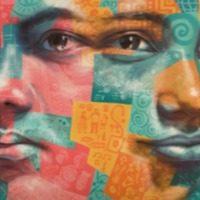
My name is Suleiman Ali, I’m Sudanese. I want to tell you about my trip from Sudan to Egypt, then to Libya and to Malta.
I went to Egypt the regular way but from Egypt to Libya I went by Tahrib [trafficking]. We suffered on the journey from Egypt to Libya. We had no food or water for two days. Then we reached Libya. We were locked up in a warehouse and they demanded ransom. We spent three days in the warehouse and then they freed us.
We arrived in the Libyan city Tobruk and waited there for a driver to take us to Tripoli. There was no driver who could take us because the road wasn’t safe. Those who left before us never arrived. They had been kidnapped and sold. So we decided to wait until things calmed down and we could move.
The journey to Bani Walid took several days. They gathered everyone who wanted to go to Tripoli in a house and detained us there. We were 15 Sudanese. Then they put us in a van. We couldn’t see each other or the street. They covered us with plastic bags and took us to a farm. We didn’t know where it was.
They put us in a room and told us to wait until they’d bring another car to take us to Tripoli. After a while they came back holding weapons, took off our clothes, and told us to call our families to send 15,000 Libyan dinars. As I was with my brother, we had to pay 30,000 dinars but our circumstances in Sudan are difficult, we don’t have that amount because in Sudanese pounds it’s a lot. So, they forced us to send our pictures and speak with our family. We were sitting there without food and water. They beat us every day.
In one day, they gave us a slice of bread and just a little water so that we couldn’t fight them or run away. They whipped us each time we were late with the payment. They hung us from the ceiling to torture us with electricity and put burning coal on our heads. The situation became worse day by day. So, we were afraid, and we spoke with our families. My father sold our house. He paid the ransom for me and my brother. Then they released us and threw us out in the streets of Misratah.
We met a person in Misratah who hosted us in his house for three days. My brother and I agreed that we couldn’t return to Sudan because our father sold the house in order to set us free. We must try to go to Europe because Libya isn’t safe.
On the fourth day we went to Khums, and from there we took a boat and arrived in Malta. The trip out to sea was at night. We weren’t afraid because we couldn’t see anything, but in the morning, we fell silent and were terrified. Above you is the sky and below is water, nothing else. There were women and children with us. It was a very difficult situation. You do not feel hungry or thirsty, but our main concern was that the journey wouldn’t be more than three days.
We were in that situation until they saved us. Thank God. We were rescued by the Maltese Navy. A thousand thanks to them!
Libya is very difficult. It’s impossible. Like me, so many were kidnapped and tortured and sold.
Narrative source Telling the Real Story facilitated by UNHCR
Original Narrative can be found at https://www.tellingtherealstory.org/en/stories/video/suleimans-story/









